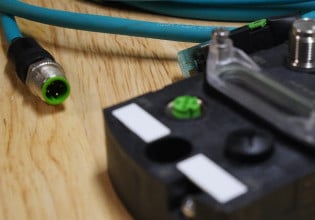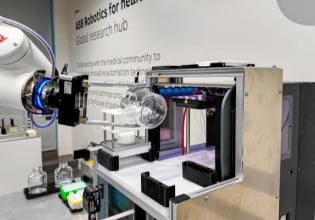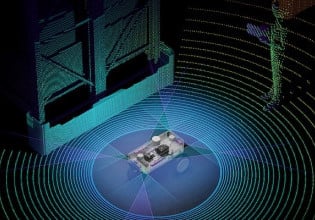ABB-backed Life Sciences Platform Expands Manufacturing Solutions
With support and technology from ABB Robotics, BICO Group introduces The Nucleus Automation Ecosystem, a modular, flexible, fully-integrated platform for life sciences manufacturers.
In a recent announcement, BICO Group unveiled a unique platform to help enhance the research and development of medical and bioanalytical testing technologies. Designed and backed by ABB Robotics, The Nucleus Automation Ecosystem (The Nucleus) is modular and scalable, with the capacity to save on time and costs associated with high-capacity manufacturing.

BICO Group’s Bioautomation business unit enhances its manufacturing product offering with the unveiling of The Nucleus Automation Ecosystem. Image used courtesy of SCIENION
BICO Bioautomation
BICO Group is a bioconvergence company that delivers life sciences-focused technologies and services to its customers within the biotechnology, bioprinting, and medical device industries.
BICO's Bioautomation business division provides customers with advanced sample preparation, precision dispensing, multiple chemical analyses, analysis miniaturization, and manufacturing of medical devices and diagnostic products.
Analysis miniaturization involves using smaller sample sizes, faster methods, and more efficient equipment to analyze chemical samples. This technique has been used in various fields, such as drug development, environmental testing, and food safety. Analysis miniaturization helps investigators obtain accurate results with greater speed, less cost, and less time invested in the process.
An ABB robot being used in the Life Sciences and Healthcare Lab at the Texas Medical Center in Houston, Texas. Image used courtesy of ABB Robotics
The Nucleus Automation Ecosystem
SCIENION, a BICO Group company, employs its sciFLEXARRAYER product line to help researchers automate the handling and dispensing of extremely low-volume liquid samples. These samples can include organic and biological materials, dyes, or nanoparticles used for medical diagnostics, the study of human proteins and genes, and technical applications.
The prototype of The Nucleus was showcased alongside SCIENION’s sciFLEXARRAYER product line at the The Society for Laboratory Automation and Screening (SLAS) International Conference and Exhibition that took place February 24th - March 1st.
According to BICO Group, the Nucleus uses environmental control (adapted to each process step) and substrate-agnostic material handling. The Nucleus also enables customers to pick, place, and package their products depending on the specific application setup.
Radio-frequency identification technology readouts, cloud storage, laser welding, quality control stations, pouching activities, and drying are only a few examples of the process phases.
A Scientific Consultant at BioNano Consulting, Dr. Nikolas Daskalakis, talks about the benefits of the sciFLEXARRAYER for research. Video used courtesy of SCIENION
The Nucleus is designed to provide users with more accurate motion control and in-the-moment analysis, including device-by-device tracing. Users can conserve space and reduce the need for utilities on the manufacturing floor because The Nucleus contains process steps in a central working area. This decreases the system size and helps to simplify the production environment. By integrating The Nucleus platform with SCIENION’s liquid handling and dispensing technologies, customers can handle low-volume solutions (within the picoliter to nanoliter range) in a stable environment.
Supporting R&D With Automation
The coronavirus pandemic highlighted the inherent weaknesses of medical device manufacturing, including lack of flexibility, market trend and supply chain adaptability, and time-consuming manual data processing.
According to SCIENION, applying automation to biological assay optimization and medical device manufacturing can improve reproducibility, reduce human error incurred while handling biological materials, and increase production speed. According to Remington Medical, automation in medical device manufacturing can also reduce labor costs and address labor shortage issues.
BICO Group’s Bioautomation business division intends to use The Nucleus to push forward more rapid development of medical and bioanalytical testing technologies and open up a pathway for scaling up production.





